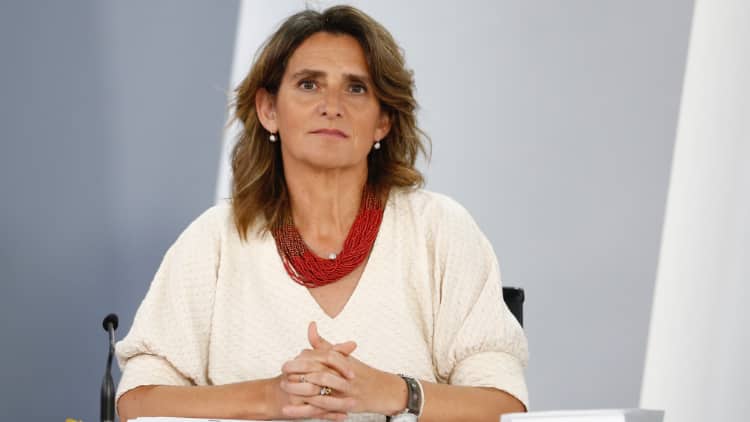The Diplomat
The Third Vice-President and Minister for Ecological Transition, Teresa Ribera, believes that a gas pipeline connecting Spain with the centre of Europe could be up and running in eight or nine months, as German Chancellor Olaf Scholz demanded on Thursday, but she pointed out that this would also require European aid, especially from France.
In statements to TVE, Ribera welcomed Scholz’s request for a gas pipeline to carry Algerian gas to Europe via Spain and Portugal, and stated that his words are a sign that Spain’s gas interconnection is not a bilateral issue with France, but something that involves other EU countries.
For this reason, Ribera said she was in favour of Germany being invited to participate in the high-level working group that Spain is maintaining with France to make interconnections through the neighbouring country more effective.
The minister insisted that there is no point in the Iberian Peninsula working to set up the interconnection if there is no continuity in French territory. It makes little sense,” she said, “for us to run a lot if it becomes a dead end on the French side because there is no way of evacuating the gas”.
He also pointed out that, as it is a project that will improve security of supply for the whole of Europe, the government believes that it should be financed as a European project.
The MIdcat project, which reached the Catalan town of Hostalric, collapsed years ago because it was not economically viable in a context in which Russian gas was much cheaper than liquefied natural gas. Moreover, it was also intended for a north-south flow and only for gas, whereas now it would be considered in the opposite direction and also for hydrogen.
According to Ribera, the construction of the Midcat will require a “very significant investment” as the infrastructure will have to be designed for a life of between 30 and 50 years, during which time the gas will give way to renewable hydrogen in its pipelines.
The Vice-President insisted that work on the Spanish part of the pipeline could be completed in eight or nine months, but the final timescale would depend on what France does on its side of the border.
For the time being, the minister said that the installation of an additional compressor on the interconnections in France could raise Spain’s gas export capacity by 20% to 30% in two or three months. She explained that this measure, together with improved logistics for methane tankers, could be short-term solutions to contribute to Europe’s gas supply in the face of “Putin’s blackmail”.
To this end, Ribera hopes to make better use of the port of Gijón to send LNG tankers from December onwards.
For his part, the PP’s Deputy Secretary for Autonomous and Local Coordination, Pedro Rollán, supported Chancellor Scholz’s proposal, and criticised Pedro Sánchez’s government for not having had “neither the drive nor the necessary demands” to complete the almost 250 kilometres of gas pipeline that are still pending.







